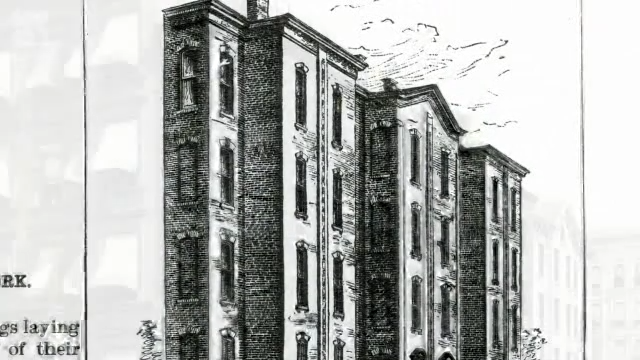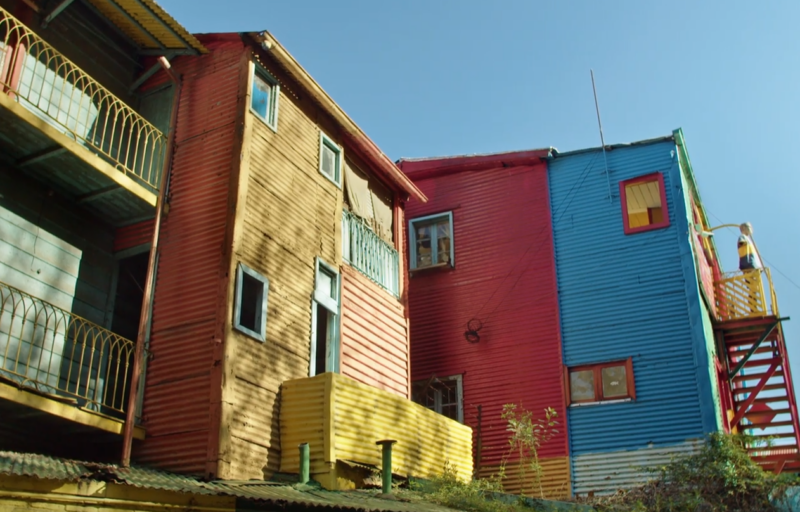A spite house is a house built for the express purpose of pissing someone else off. Personal comfort, adequate living space, and compliance with local zoning laws all come second to this all-important goal.
Spite houses come in all shapes and sizes, but the best are absurdly small and very angry indeed. Here are a few of my favorites, ranked from least- to most-spiteful.
The Montlake Spite House, Seattle
The Story: You have options here. EITHER the house was a result of a divorce settlement in which the husband got the [large, non-spiteful house] and the wife got the front yard and decided to use it, dammit — OR, the house was built by Neighbor 1, after Neighbor 2 made him an insultingly low offer on the land and Neighbor 1 was so appalled that he decided to wreck things for everyone with a tiny house in the front yard.
Neighbor 2 eventually ended up moving, and Neighbor 1 ended up with a tiny house in his yard. There is another alternative explanation which involves a landowner vacationing in Germany and letting someone build on his land as long as that somebody left him enough space to build his own home… you know how this ends up. Everybody wins! (Nobody wins. This is the story of most spite houses, in general.)
The Spite: Beautifully, ingeniously spiteful. By all accounts, the house, which is 15 feet wide at the front and 4.5 feet wide at the back (the end you see in the picture), is actually pretty comfortable, and it did get the better view and street frontage.
If you’re the wife who is living in this place, you’re in pretty good shape, assuming you don’t want to do a lot of yoga in your kitchen. If you’re the husband/homeowner stuck in the house behind it, you’re totally screwed. It’s spite that doesn’t make life all that much harder for the spider and much more difficult for the spite-ee.
The Hollensbury Spite House, Alexandria, Virginia
The Story: The owner of one of the neighboring houses, a Mr. John Hollensbury, enclosed the alley next to his house to keep out wagons, loitering youths, and other miscreants. The house isn’t really a “house” with its own walls and structural system — it’s an enclosed alley with a roof and a front door, only about 7 feet wide and 25 feet deep.
The Spite: Quite spiteful. This seems like an awful long way to go to get across the age-old “Hey, you kids, get off my lawn” message. Not only that, you’re inflicting this incredibly tiny living space on someone else.
The house seems to have found its niche with renters who enjoy very little natural light (no windows on the sides, just on the front and back), extremely low utility bills, and the spaciousness and efficiency of a ship cabin without any of the nasty seasickness.
The Alameda Spite House, Alameda, California
The Story: Again, there are multiple explanations here. One involves the owners of the larger property selling off a narrow strip of land between their house and the street.
They made the mistake of selling it to a carpenter, who started building on the site, got into a fight with the former landowners, and went and built a ten-foot-wide, 54-foot-long house in the space, completely blocking the larger house’s side view of anything but wall.
Another story says that the larger plot of land belonged to a father with two sons, one estranged — the father gave the estranged son the smaller plot of land, and you all know how this ends.
The Spite: Spitetacular! If you check out aerial views of the site, that house is RIGHT in the way of the one next door — practically on top of it. It takes some serious rage to engineer and build a ten-foot-wide house, especially one that close to a road and another building. The rage was so strong with this one that the builder allegedly inlaid the word “spite” into the front stoop. Sick burn.
The Richardson Spite House, New York City

The Story: A businessman in 1880s New York — some say a man named Patrick McQuade, others say it was a Mr. Hemyan Sarner —owned some lots along 82nd Street and wanted to fill them with apartment buildings. His land extended nearly to Lexington Avenue and he wanted to buy up the remaining strip of land to complete the block.
The owner of the land, a Mr. Richardson, wanted much more for the property than McQuade/Sarner wanted to pay for it, so McQuade/Sarner said screw you and your crappy land, I didn’t want it anyway, and built his apartments so they overlooked the strip of land toward Lexington Avenue, clearly thinking that they would be able to enjoy the view without any buildings popping up in the five-foot-wide space. You see where this is going, right?
The Spite: Spitetastic. Not only did Richardson manage to build the 104-foot-long, 5-foot-deep building that completely blocked the Lexington Avenue views from McQuade/Sarner’s apartments, he made his building into apartments, living in one himself and renting out the others to desperate, skinny tenants.
Richardson overruled his daughter’s worry that they wouldn’t be able to find anyone to live there, as “everybody is not fat and there will be room enough for people who are not circus or museum folk.” The tenants had to find unusually small furniture and not mind single-person staircases, among other minor issues.
Keep in mind that though Richardson and McQuade/Sarner were the major players in this dispute, the people who really had to deal with the fallout were their tenants. It takes serious spite to inflict an 18-inch-wide dining table on someone you don’t even know, just to make a point. (Sadly, this house was demolished in 1915, so we can’t go experience the reality of a five-foot-wide living space for ourselves.)
Skinny House, Boston
The Story: So you’ve got two brothers. One brother goes to fight in the Civil War, and the other stays home and builds a house on their recently-deceased father’s property, leaving a strip of land for his soldier brother that was certainly too narrow to build on.
Soldier brother comes back, gets mad, builds a house — just over 10 feet wide at the widest point — immediately on top of the brother’s house, cutting that side of the house off from sunlight, fresh air, and anything that isn’t a very angry brother going “THIS IS YOUR FAULT, YOU JACKASS.” Presumably.
The Spite: The spite-est! Cheating your brother out of his inheritance is bad enough, but doing it while he’s away at war is just the worst. Soldier brother certainly made his point — and made his brother’s life considerably more difficult — by refusing to go build elsewhere, but he made his own life much harder too.
At its narrowest point, the house is just over 6 feet wide, and most of the floors in the four-story house hold only one room each. On top of that, building on top of your brother’s house to block his view means that your view gets blocked too, and you have to live next to the guy forever. It takes an awful lot of spite to live like that.
FAQ
Are spite houses legal?
Spite houses are generally legal, but they must comply with local zoning laws, building codes, and regulations.
Can a spite house affect property values?
Yes, a spite house can potentially affect the property values of surrounding homes due to its unusual nature and impact on the neighborhood’s aesthetic.
Have spite houses been used in movies or literature?
Spite houses occasionally appear in movies and literature, often symbolizing themes of stubbornness, conflict, or eccentricity.
Are there famous spite houses outside of the United States?
Yes, there are spite houses in various countries, each with its unique story and cultural significance.
Can a spite house be remodeled or expanded?
Remodeling or expanding a spite house is subject to the same regulations as any other house, but their unique structures often make it challenging.
Has any spite house been converted into a commercial property?
Some spite houses have been converted into commercial properties, like cafes or shops, depending on zoning laws and market demand.
Are there any documented psychological studies on the motivations behind building spite houses?
While specific studies on spite houses are rare, they are often discussed in the context of behavioral psychology, focusing on human emotions and conflict.

